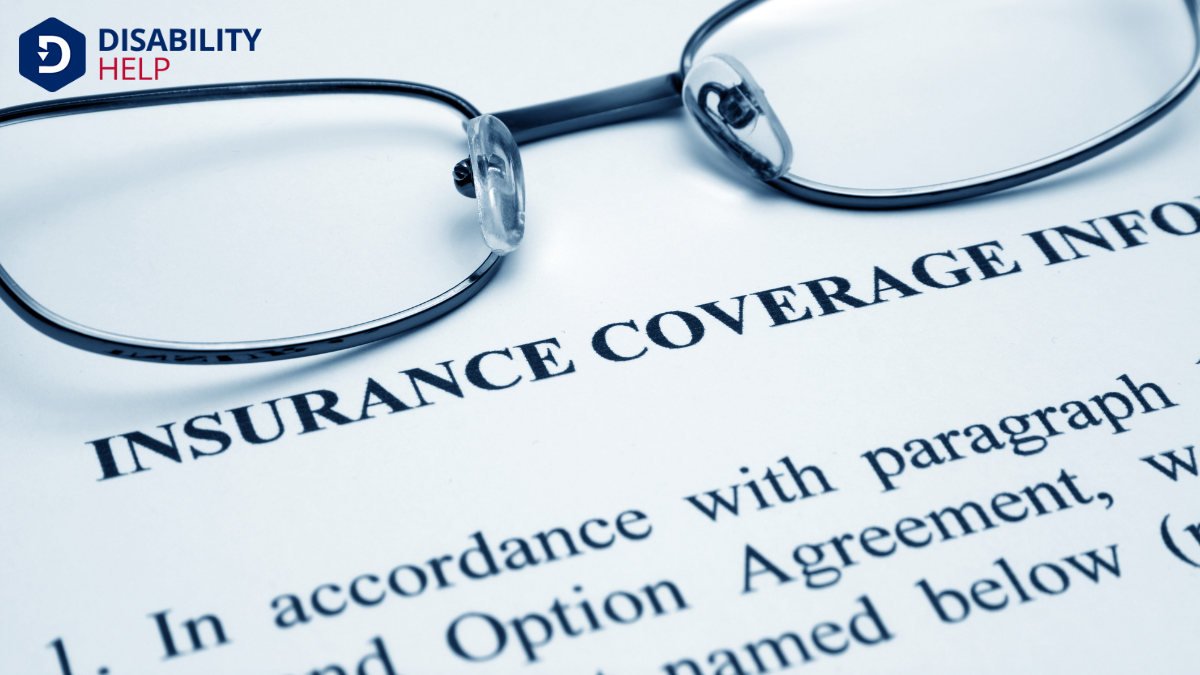As self-employed individuals, we're often concerned about protecting our income if illness or injury strikes unexpectedly. Luckily, disability insuranceA form of insurance that provides income to individuals who are unable to work due to a disability. can offer the financial security we need. But charting the options and understanding the right coverage for our unique situations can be intimidating. Let's explore how we can safeguard our livelihoods and guarantee peace of mind, even when the unexpected happens.
Key Takeaways
- Yes, self-employed individuals can obtain disability insurance tailored to their unique needs.
- Disability insurance for the self-employed covers income loss from illness or injury.
- Both short-term and long-term disability policies are available for self-employed individuals.
- Required documentation includes income tax returns, profit and loss statements, and business licenses.
- Consulting with an insurance specialist helps self-employed individuals choose the best policy.
Understanding Disability Insurance for the Self-Employed
When you're self-employed, understanding disability insurance becomes essential to safeguarding your income. We rely on our ability to work, so a sudden illness or injury could jeopardize our financial stability.
Disability insurance provides a vital safety net, replacing a portion of our income if we can't perform our job due to a disability.
Navigating this insurance landscape requires us to grasp key concepts. It's important to know the difference between short-term and long-term disability, as these terms determine how long benefits are paid.
We should also familiarize ourselves with the policy's waiting period, which is the time before benefits begin. By understanding these elements, we're better equipped to choose a policy that aligns with our needs, ensuring peace of mind when facing unforeseen challenges.
Types of Disability Insurance Coverage Available

Having grasped the fundamental concepts of disability insurance for the self-employed, let's explore the various types of coverage available.
Understanding our options helps us make informed decisions. Here are the main types of disability insurance coverage we can consider:
- Own-Occupation: This coverage pays benefits if we're unable to perform the specific duties of our occupation, even if we can work in another capacity.
- Any-Occupation: This type offers benefits only if we can't perform any job suitable for our education and experience.
- Partial Disability: It provides benefits if we're able to work but have reduced income due to disability.
- Residual Disability: Offers partial benefits based on the income loss percentage, supporting us as we recover and return to full capacity.
Each type serves unique needs, ensuring we find the best fit.
Short-Term vs. Long-Term Disability Insurance
As we navigate the complexities of disability insurance, distinguishing between short-term and long-term coverage is essential.
Short-term disability insuranceInsurance that provides income replacement for a limited time when an employee is unable to work due... provides benefits for a limited period, typically three to six months, offering critical financial support when we're unable to work due to temporary medical conditions. It covers a portion of our income, helping us manage immediate expenses.
On the other hand, long-term disability insuranceInsurance that provides income replacement for individuals who are unable to work for an extended pe... kicks in after short-term benefits end, offering support for extended periods, potentially up to retirement age.
This coverage is indispensable if we're facing severe injuries or illnesses that prevent us from working for months or years. Understanding the differences between these options allows us to choose the right protection for our unique needs, ensuring we remain financially secure.
How to Determine the Coverage You Need
Determining the right disability insurance coverage requires a clear understanding of our individual financial situation and potential risks.
As self-employed individuals, we need to guarantee our policy aligns with our unique needs.
Let’s consider a few key factors:
- Income Replacement: How much of our income do we need to replace if we're unable to work? A common recommendation is 60-80% of our income.
- Living Expenses: What're our monthly expenses? Our coverage should at least meet these to maintain our lifestyle.
- Savings and Assets: Do we've savings or assets that could cover us for a while? This influences the amount and duration of coverage required.
- Risk Assessment: What're the risks in our occupation? Higher-risk jobs might require more extensive coverage.
The Application Process for Self-Employed Individuals

As we start the application process for disability insurance, it's essential to have a clear checklist of required documentation at hand.
Understanding the eligibility criteria will help us determine what information we need to gather.
Let's make sure we're well-prepared to streamline the process and increase our chances of approval.
Required Documentation Checklist
When applying for disability insurance as self-employed individuals, gathering the right documentation is vital to streamline the process.
We need to guarantee we've everything ready to demonstrate our income and work history. This preparation not only speeds up the application but also improves our chances of approval.
Here's a checklist of significant documents:
- Income Tax Returns: At least two years of filed returns to verify income consistency.
- Profit and Loss Statements: Current statements to show financial health and ongoing earnings.
- Business License: Valid documentation proving the legitimacy of our business.
- Identification: A government-issued ID to confirm our identity.
Eligibility Criteria Overview
Before diving into the application process for disability insurance, we need to understand the eligibility criteria specific to self-employed individuals.
First, we must prove our self-employment status, which typically involves showing tax documents like a Schedule C or 1099 forms. These documents verify our income and business legitimacy.
Next, insurers often require a minimum income threshold to guarantee we can afford the premiums. We should also be prepared to demonstrate consistent earnings over time, as fluctuating income might impact eligibility.
Additionally, insurers may evaluate our occupation's risk level, considering the nature of our work and associated hazards.
Evaluating Insurance Providers and Policies
How do we guarantee we're choosing the right disability insurance provider and policy? We need to evaluate carefully. First, research is essential. Let’s dig into each provider's reputation and customer reviews. We should prioritize providers with strong financial ratings, ensuring they can pay claims.
- Policy Features: Look for non-cancellable policies, ensuring stability without unexpected changes.
- Waiting Periods: Shorter waiting periods mean quicker benefits, so let’s compare options.
- Benefit Periods: Longer benefit periods provide greater security; assess what suits our needs best.
- Exclusions and Riders: Understand what's not covered and consider optional riders to tailor coverage.
Calculating Premium Costs and Budgeting
Although understanding premium costs might seem intimidating, it’s crucial for making informed decisions about disability insurance. As self-employed individuals, we need to grasp how premiums are calculated. Factors like age, health, occupation, and income level influence the premium amounts. Knowing these variables helps us gauge what we might pay and align it with our financial plans.
Budgeting for disability insurance means evaluating our current expenses and deciding how much we can allocate towards premiums. By comparing different plans, we can identify those that fit our budget without sacrificing coverage.
Let’s remember that investing in disability insurance is about securing peace of mind. Prioritizing this protection guarantees we’re prepared for unexpected circumstances, allowing us to focus on growing our business confidently.
Tips for Securing the Best Plan

When it comes to securing the best disability insurance plan, what steps can we take to guarantee we're making the right choice?
First, let's research different providers to compare their offerings. We should carefully evaluate the policy terms and conditions to understand what coverage we truly need.
Here's a quick guide to help us through:
- Assess Our Needs: Determine the coverage amount that matches our income and lifestyle.
- Compare Providers: Look into multiple companies to find competitive rates and reliable service.
- Read Reviews and Ratings: Consider feedback from other self-employed individuals to gauge satisfaction.
- Consult a Professional: Seek advice from an insurance specialist who can clarify complex details.
Maintaining Your Policy and Ensuring Continuous Coverage
To keep our disability insurance policy active and secure continuous coverage, we must stay vigilant and proactive.
First, let’s verify timely premium payments. Missing a payment might lead to a lapse in coverage, leaving us unprotected. Setting up automatic payments or reminders can help.
It’s also essential to review our policy annually. As self-employed individuals, our financial situations can change, and our coverage should reflect those changes.
Let’s notify our insurer of any significant income shifts to maintain adequate protection. Additionally, we should stay informed about any policy adjustments or updates.
Connecting with our insurance agent regularly keeps us in the loop. By taking these steps, we can confidently rely on our disability insurance when we need it most.
Conclusion
In summary, let's prioritize protecting our income by securing disability insurance tailored to our self-employed needs. Understanding the differences between short-term and long-term coverage and choosing the right policy is essential. By gathering necessary documentation and evaluating providers, we guarantee we're well-prepared for any unforeseen circumstances. Calculating premium costs and budgeting effectively will help us maintain continuous coverage. With the right plan, we can confidently safeguard our livelihood and focus on what we do best.






